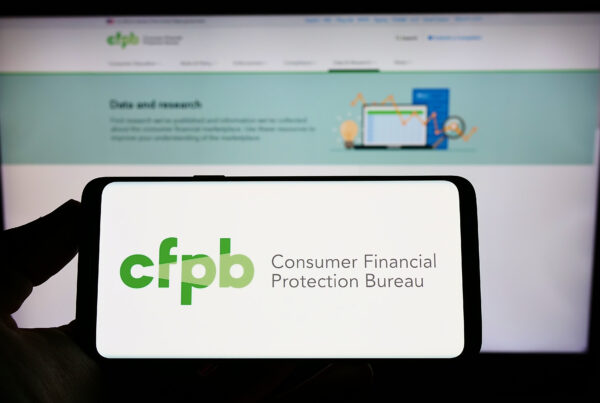By Crystal Williams, Ed.M.
The Division for Early Childhood of the Council of Exceptional Children, the leading professional organization in EI/ECSE, spearheaded efforts to develop EI/ECSE standards. It is important for all early childhood professionals to become familiar with these standards to provide the support needed for individual children with disabilities and their families. In this seven-part blog series, we discuss each standard, prompt questions for reflection, and provide tips and resources that professionals can use to ensure their practices align with the EI/ECSE standards.
Standard 7: Professionalism and Ethical Practice
| Components | Reflective Questions | |
| 7.1 | Participate in professional activities and organizations at the local, regional, state, national, and/or international levels. |
|
| 7.2 | Engage in ongoing reflective practice and use evidence-based information for professional growth. |
|
| 7.3 | Display leadership skills by advocating for improved outcomes for young children, families, and the profession. |
|
| 7.4 | Practice within ethical and legal policies and procedures. |
|
Resources to enhance your knowledge related to Standard 7:
- Division for Early Childhood Code of Ethics
The purpose of DEC’s code of ethics is to provide professionals with key principles of professional conduct and guidance for responding to ethical dilemmas and conflict that emerge in their work.
- National Association for the Education of Young Children Code of Ethical Conduct
NAEYC’s code of ethical conduct discusses core values in the field and provides a framework for professional responsibilities which addresses relationships with children, families, colleagues, and the community/society.
- Division for Early Childhood Policy and Advocacy Webpage
This resource explains opportunities for families and professionals to get involved in advocacy, policy and leadership roles through DEC.
- Council for Exceptional Children’s Legislative Action Center Website
CEC created this resource for special education advocates to learn about and act on legislative issues. The website includes information about elected officials, prepared letters that can be sent to members of congress, and in-depth information about legislative topics.
- Ethical Principles: Matrix of Professional Organizations
The document, created by experts in ECSE presents ethical principles of several early childhood professional organizations and organizes the principles into three themes—family as foundation, dignity, and community.
- Focus on Ethics: Case Examples
This resource from NAEYC presents dilemmas early childhood professionals may face in their work. Each article presents a problem and uses guidance from the field to answer the question, “What should the early childhood professional do?”
- Tuesdays with Liz Video Series
Liz, a disability advocate, hosts a weekly video on YouTube to highlight current issues and hot topics related to disability policy.
Tips for improving your practice related to Standard 7:
- Join a professional organization, such as DEC or NAEYC. They often offer discounted memberships to families, early career professionals, and students. You may also find discounted rates to join during certain times of the year.
- Look into the benefits of your professional memberships, which may include access to journal articles and webinars, communities of practice, and discounted conference rates.
- Join a community of practice (e.g., DEC, Echo Autism) to increase your knowledge on important topics and make connections with others in the field.
- Develop a plan for your professional growth. Include 2-4 goals you want to achieve in the next year. Identify activities and resources that will help you achieve your goals.
- Look for opportunities to engage in reflection with others. Some opportunities may include reflective practice with your supervisor, mentoring from a more experienced professional, peer coaching with a colleague, or involvement in a professional learning community.
- Staying up to date on disability topics may seem like a daunting task. Try finding resources that present information in your preferred learning modality. Consider signing up for newsletters, listening to podcasts, attending live events, or watching videos to stay informed.
Families of children with disabilities, especially those with significant disabilities, should be aware of disability policies and prepared to advocate for their child during and beyond the early years. Early childhood professionals can help build families’ advocacy skills in several ways.
Tips for enhancing advocacy skills of families:
- Ensure families fully understand their rights and their children’s EI/ECSE services. Spend time discussing these and provide multiple opportunities for families to ask questions and seek clarity.
- Encourage families to be active members of their child’s education team. This may include asking caregivers to share their knowledge, observations, and priorities for their child, encouraging them to monitor their child’s progress, and helping them make informed decisions about their child’s goals, services, and supports.
- Share reputable resources and evidence-based information with families.
- Include links to policy issues in newsletters/notes or forward emails from professional organizations about policy and advocacy to family members.
- Invite families to participate in policy and advocacy efforts/events at the local, state, or federal levels. Families may be more inclined to engage in activities that impact their child directly; therefore, it is important to share what is happening in their child’s educational setting and/or the local school district as a way to promote family involvement.
- Spread the news that families can join professional organizations, attend disability-related conferences, and/or serve as a board member for a disability organization. Encourage family engagement!
- Complete the OneOp Field Guide to Family Advocacy Course to learn ways to support families of young children with disabilities as they navigate special education systems. Share the information and resources with families.













